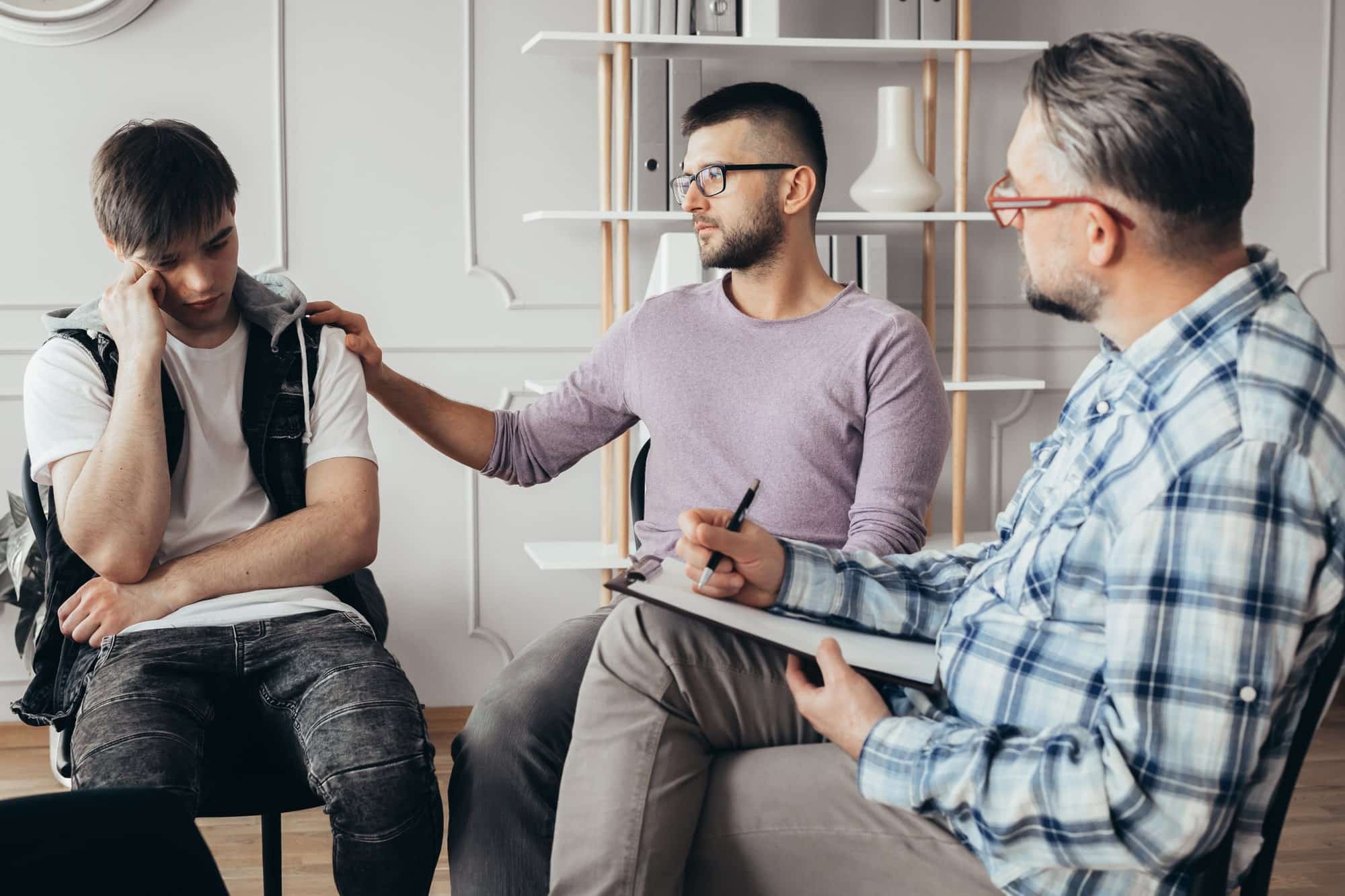Table of Contents
At Behavioral Health Centers, we understand the courage it takes to seek help for drug and alcohol addiction. Our addiction treatment center, nestled near the tranquil shores of Port St. Lucie, Florida, extends a helping hand to residents of Atlanta, GA, offering a serene escape where the focus is solely on your recovery process.
If you or a loved one are struggling with addiction or mental health issues, call Behavioral Health Centers today at 772-774-3872 to begin your journey toward recovery.
Comprehensive Inpatient Treatment Tailored for You
Our treatment services are designed to address the full spectrum of substance abuse issues, providing a path to recovery that respects the complexity of your situation. Whether you’re grappling with alcohol addiction or substance use disorders, our residential treatment services offer a blend of traditional and innovative therapies. We incorporate a variety of evidence-based therapies into our addiction treatment services:
- Cognitive Behavioral Therapy (CBT): A form of psychotherapy that helps identify and change negative thought patterns, CBT is effective in managing stress and preventing relapse.
- Dialectical Behavior Therapy (DBT): This therapy focuses on improving emotional regulation and mindfulness, which is beneficial for those with dual diagnoses of substance abuse and mental health issues.
- Individual Therapy: Tailored one-on-one sessions with therapists address personal challenges and underlying issues and help set recovery goals.
- Group Therapy: Offers a community setting to share and learn from others, providing support and diverse perspectives on the recovery journey.
Each therapy is critical to our comprehensive treatment programs, contributing to a well-rounded and effective recovery experience.
Dedicated Veteran Treatment Program
At Behavioral Health Centers, we deeply respect our military veterans’ service and sacrifice. Recognizing the unique challenges faced by those who have served, our rehab offers a specialized Veteran treatment program tailored to address the specific needs of veterans from Atlanta, Georgia, and nationwide.
Our program is designed with an understanding of the military culture and the particular mental health and substance use disorders that can arise from military service. We are committed to providing our veterans with the highest level of care, honoring their service by supporting their journey to recovery with the dignity and dedication they deserve.
Compassionate Care for Medical Professionals
At Behavioral Health Centers, we recognize the immense pressure and unique stressors medical professionals face. Our treatment program for medical professionals is specifically designed to support doctors, nurses, pharmacists, and other healthcare workers from Atlanta, Georgia, and beyond who are dealing with substance abuse or mental health issues.
We aim to help those who have dedicated their lives to caring for others. Our rehab offers medical professionals a path to recovery that respects their unique role in society and the specific challenges they face in their personal and professional lives.
Your Recovery, Our Commitment
Every journey through our residential program begins with thoroughly evaluating your needs and crafting a treatment plan that includes medical detox, medication-assisted treatment, life skills training, and more. Our group therapy sessions foster a sense of community, which is vital for long-term addiction recovery, while individual therapy provides personalized care and attention.

Connection Between Mental Illness and Drug Addiction
Substance use disorder (SUD) is a mental illness that affects your ability to limit the use of controlled substances. As with other psychiatric disorders, SUD can be caused by various genetic, biological and environmental factors. Drug addiction refers to the most extreme type of substance use disorder.
Around 8.5% of Americans live with a diagnosed substance use disorder, half of whom experience co-occurring disorders or mental illnesses resulting from or contributing to their SUD.
Individuals can receive a dual diagnosis treatment that identifies their SUD and mental illness. In such situations, the conditions will be jointly treated using a range of behavioral health therapies to help the person achieve a healthy future.
Discover A Healing Environment at our Recovery Center
Our beachside location isn’t just a backdrop; it’s an integral part of the healing process. The peaceful surroundings offer a respite from the hustle of Atlanta, GA, allowing you to focus on overcoming withdrawal symptoms and building a sustainable lifestyle free from substance abuse.
Insurance Coverage and Affordability: Ensuring Accessible Care
At Behavioral Health Centers, we believe that financial constraints should never be a barrier to receiving quality addiction treatment and mental health services. To ensure our treatment programs are accessible to those in need, we proudly accept a wide range of insurance plans, including:
- Aetna: As a recognized provider, we work with Aetna to offer various treatment services covered under their plans, making addiction recovery more attainable.
- Beacon Health Options (formerly ValueOptions): We collaborate with Beacon to provide behavioral health and substance abuse treatment services, ensuring that care is within reach.
- Blue Cross Blue Shield: With coverage from one of the nation’s largest health insurers, our patients can access the necessary treatment programs without undue financial stress.
- Cigna: Our partnership with Cigna allows us to deliver comprehensive care to those covered under its health plans, focusing on personalized treatment.
- EmblemHealth: We accept EmblemHealth insurance, which supports a range of addiction treatment services, facilitating a smoother path to recovery.
- Empire: By working with Empire insurance plans, we ensure that our patients can receive the high-quality treatment they deserve.
- Government Employees Health Association (GEHA): We honor the service of government employees by accepting GEHA insurance for a spectrum of addiction treatment options.
- TRICARE: We proudly support military personnel and their families by accepting TRICARE, providing dedicated care to those who serve our country.
Navigating insurance benefits can be complex, but our knowledgeable staff is here to guide you through the verification process. We’ll help you understand your coverage and out-of-pocket costs, and we work directly with your insurance provider to maximize your benefits. Our commitment is to make the process as seamless as possible, allowing you to focus on what truly matters—your recovery journey.
To get started, you can verify your insurance coverage for addiction and mental health treatment.

Alumni Program: Ongoing Support for Lasting Recovery
Our commitment to your addiction recovery extends beyond our treatment center. The alum program at Behavioral Health Centers is designed to connect you to a supportive community, crucial for maintaining the strides made during your residential treatment.
Begin Your Journey Today
For Atlanta, Georgia residents, the path to healing from drug or alcohol addiction starts here. Behavioral Health Centers is more than a rehabilitation center; it’s a recovery center where transformation is possible. Contact us at 772-774-3872 to learn more about our outpatient services, family programs, and how our addiction treatment services can be the first step toward reclaiming your life.



